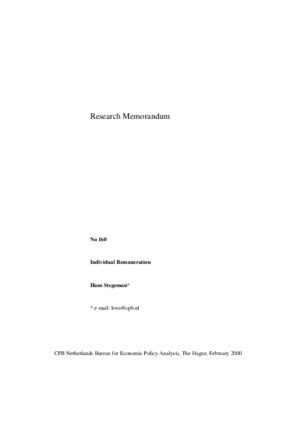Individual remuneration
Individuele beloningscomponenten vaak gebruikt als prikkel voor betere prestatie.
We are sorry, unfortunately there is no English translation of this page.
We test these theories empirically on Dutch data over the period 1992-1997. The data contain information on several pay elements at the individual level. Our results indicate that enhancing productivity is one of the reasons to introduce performance related pay practices. Part of the effect however is due to selection of workers with high ability in jobs which reward individual productivity. Different pay practices can also be related to differences in institutions, like the level of corporatism. In firms which are not bound by collective labour agreements, individual remuneration and profit sharing are much more important compared to firms which are bound by collective labour agreements. Finally, we test whether Weitzman's profit sharing theory is important for the Netherlands. Because our estimates show that individual remuneration and profit related payments are complementary to the base salary, we rule out the possibility that these pay elements are used to reduce wage rigidity.
